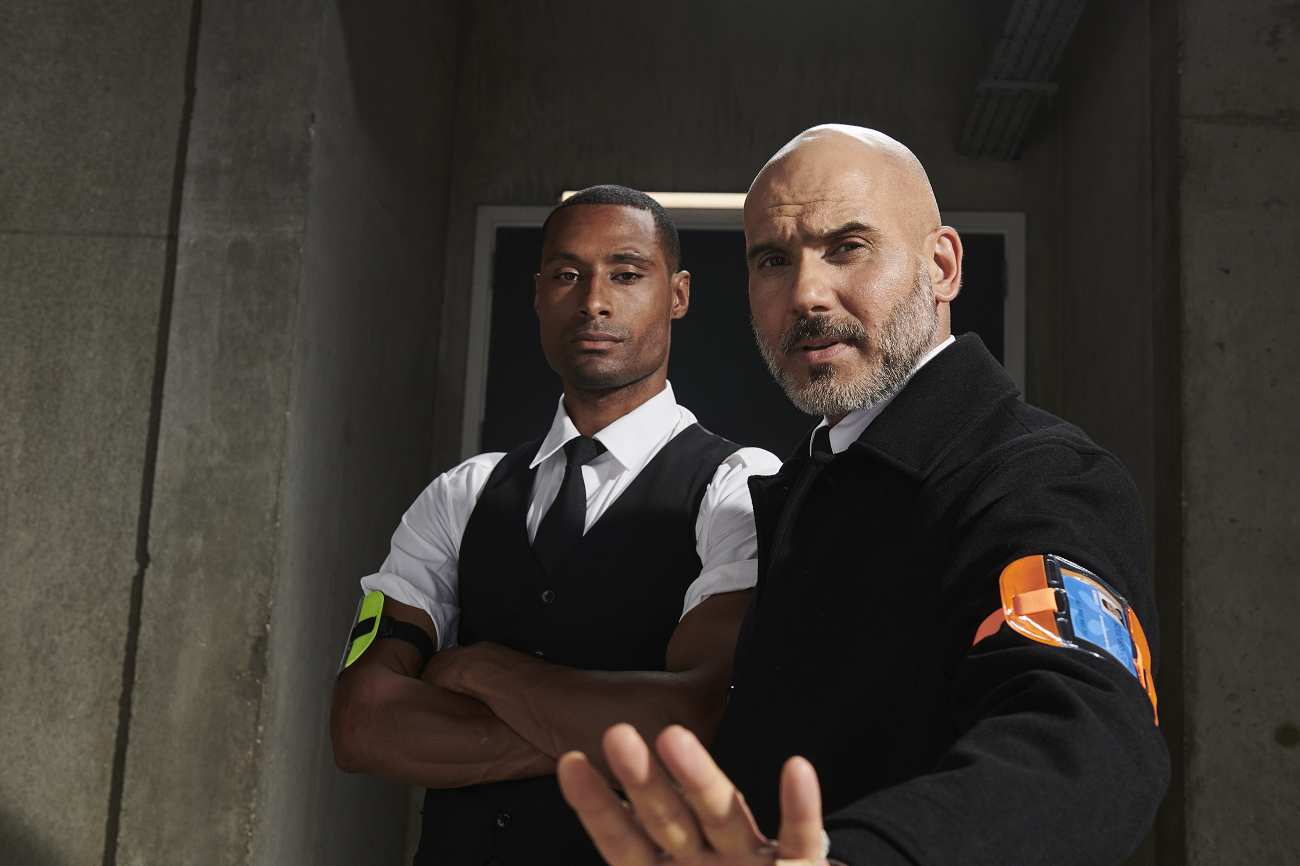
What Security Guards Can & Can’t Do
Whether you are considering a role in security or just a public member, it’s interesting to know what security guards can and can’t do.
When you see a security guard dressed up in a uniform similar to a police officer’s, you may think they have the same powers as the police. It’s entirely possible to be stopped by mistake by an overzealous security guard while you are going about your weekly shop (it’s happened to me), and as a consumer, it’s always good to know your rights.
After reading this blog, you’ll know if security guards can touch you, search you or detain you whether you are out shopping or clubbing. So read on to better understand your rights and learn more about the security industry.
What Is a Security Guard & Is It The Same as A Door Supervisor?
If you are considering a role in security, it can be confusing as to why we run two courses, one for a security guard and one for a door supervisor, when you may think they are the same thing.
In truth, they can be very similar roles. The main difference is that a door supervisor is LICENSED to work in places where ALCOHOL is consumed, and a security guard is NOT.
We suggest you take the door supervisor course as you can work both roles. If you are against working for premises that serve alcohol and would never take a job there, you might want to take the shorter security guard course.
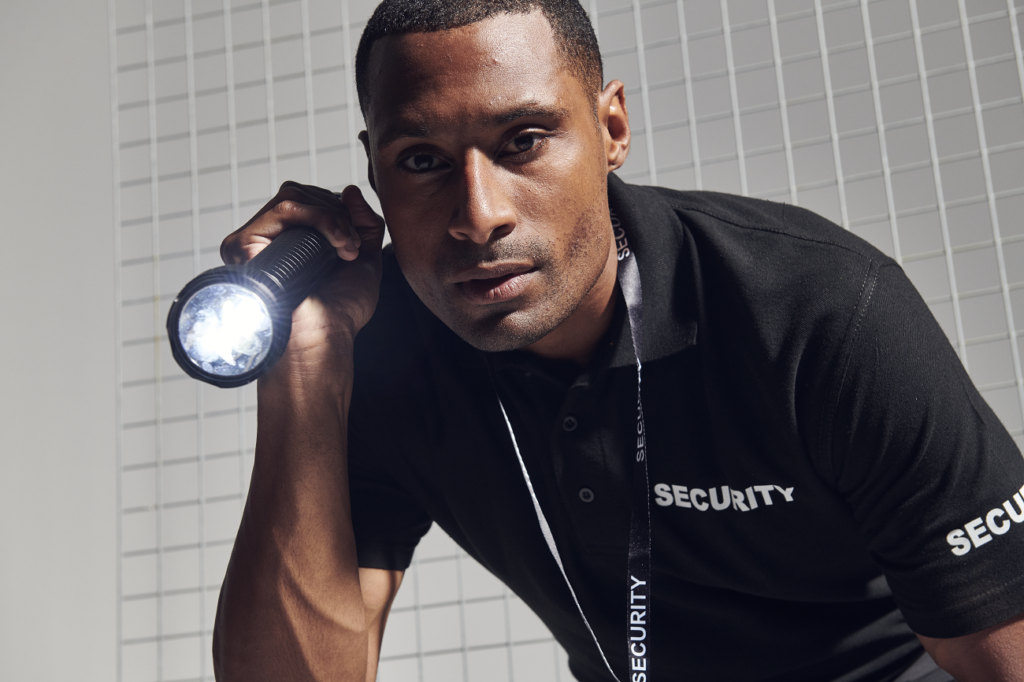
What Does It Take to Become a Security Guard?
One excellent thing about becoming a security guard is the more accessible barrier to entry. There is a course to take, and you must apply for a licence. But the great news is that the course takes from four to six days and you could have your licence within four weeks of applying. So, you could start your first shift in three weeks from deciding to become one!
If you are concerned about taking a course, you’ll be pleased to know that 95% of people pass the first time. And you can grab a gold or platinum deal which means you can get free retakes or a full refund if you don’t pass the first time.
There are no academic qualifications to take the course; all you need is to have a good level of English and be over 18 years of age. To apply for your licence, you’ll need to provide proof you are entitled to work in the UK, and you’ll need to be able to pass a background check on your mental health and criminal record.
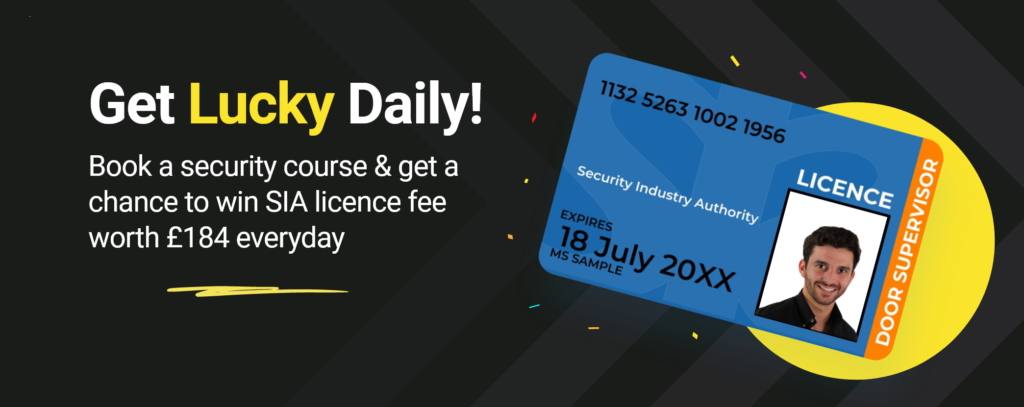
Can You Become a One With a Criminal Record?
After passing your security guard or door supervisor course, you must apply for your licence. It’s a frequent question and concern about whether you will have your application denied because of having a criminal record. Well, getting a criminal record is not difficult in the UK. Around 11 million people in the UK have a criminal offence which is around one for every six men, women and children. It’s also estimated that one in three men has a criminal offence.
So with those stats, it’s just as well criminal convictions don’t mean a life of unemployment. In fact, you can still be a doctor or an MP if you have a criminal record; however, it does depend on the offence. The same applies to becoming a security professional. Because you are in a position of responsibility and are dealing with the public, the SIA is interested in those types of crimes which would make a person unsuitable for this type of work.
The types of offences the SIA considers relevant include:
- Violence
- Dishonesty (theft and fraud)
- Drugs
- Weapons
- Sexual
- Abuse and neglect of children
Offences that were minor and happened long ago are unlikely to prevent a licence from being granted. The SIA will also look at the severity of an offence, so if a prison sentence were given rather than a fine, the SIA would be less likely to grant a licence.
The SIA will also look more harshly on a pattern or string of offences rather than a single misdemeanour. If you are concerned about spending money on a course and a licence only to be refused, then you can check with our handy tool where you can input some basic details about your offences. The tool will give you a better idea of whether the SIA will grant your licence.
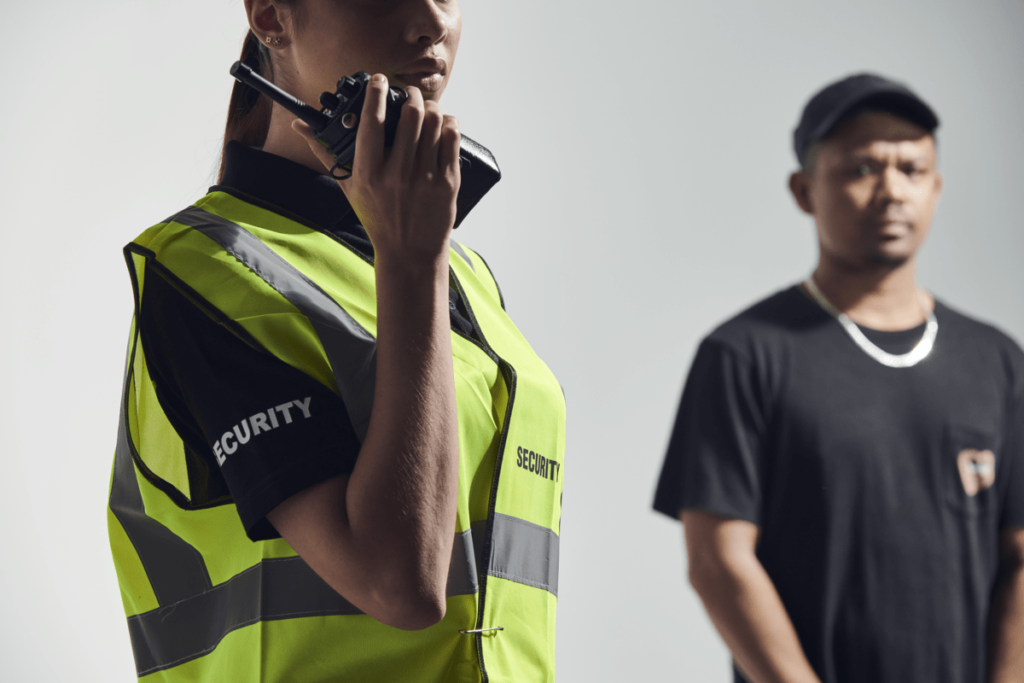
What Security Guards Can & Can’t Do: A Brief Overview
We often think of security guards as police officers with fewer powers, which is true. But, for the most part, security guards are more like members of the general public. They have no more rights than any other member of the public.
Did you know that any person in the UK can legally perform a citizen’s arrest? It’s just that I doubt many of us have ever tried! Yes, security guards liaise with the police as they are in the business of preventing and dealing with crime.
But all a security guard can do to you is perform a citizen’s arrest. And this must only be done under certain circumstances.
Carrying weapons in the UK is not legal, and as such, not even security guards are allowed to carry guns, batons, tasers, or pepper spray, which the police can do. The only item a security guard has is a set of handcuffs. These are not weapons; they are an aid to detaining a person after a citizen’s arrest is made by the security guard and are only used until the police arrive.
Can Security Guards Detain You?
As mentioned above, a security guard can detain you, but they must have good reason to do so. When detaining you, they are carrying out a citizen’s arrest and the rules they must follow are set out in Section 24A of the Police and Criminal Evidence Act.
- They witness or have reasonable grounds to believe a person has committed a crime.
- They witness or have reasonable grounds to believe a person is in the act of committing a crime.
- To protect a person from causing injury to themselves or others.
- To protect a person from causing property damage.
- To prevent a person from leaving the scene before a police officer arrives to assume responsibility.
Can Security Guards Touch You?
Security guards can touch you while they are in the act of detaining you, but that is all they can do.
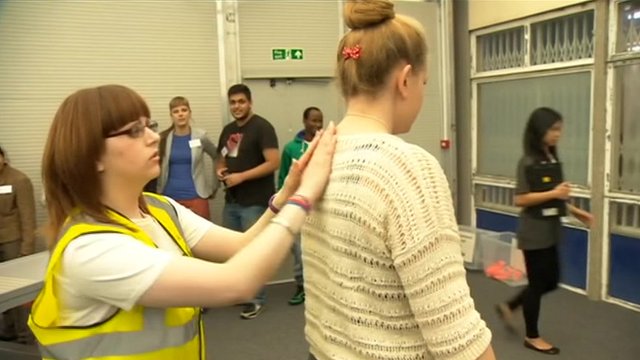
Can a Security Guard Search You?
A security guard can only search you and your bag or car if you consent to this. If you don’t consent, then they may not search you. If you enter a club and don’t want your bag searched, they will probably refuse your entry, and you’ll be on your way.
If you have been detained by a security guard who suspects you of concealing stolen items in your bag, once again, if you refuse the bag search, the guard may not perform it. However, they will simply detain you until a police officer arrives to conduct a legal and forced search if you still refuse.
The only times a security professional can search a person’s belongings, such as a bag, is if the property had been left unsupervised and the guard is checking for a potential bomb threat. They can also search your bag if you are unconscious. The security guard may search your belongings to identify you or find any medications that may help with your health crisis.
Do Security Guards Have To Identify Themselves?
All security guards must identify themselves by displaying their licence and badge on their uniform at all times, where the general public can view it. If you see a security guard with no badge, you should inform the company they work for. If you are a security guard and lose your badge, you must notify the SIA immediately, but you can work until a replacement arrives. If the SIA finds out a person is working without displaying a badge, they can revoke the licence or even pursue the person legally for violating the terms of their licence.
Summary
With a lot to take in, here’s a quick summary.
- To become a security guard or a door supervisor (who can also work venues where alcohol is consumed), you must be over 18, have the right to work in the UK and pass a 4-6 day course.
- You must also pass a criminal background check. Using the SIA criminal check tool, you can check if any convictions will likely affect your chances.
- A security guard can detain you and touch you to do so, but it is only under certain circumstances typically that they suspect you of a crime.
- A security guard cannot search your property without your consent.
- Security guards must always display their licence and badge on their uniforms.

Where To Get a Security Guard Licence
If you are interested in getting into this exciting industry that could springboard you to executive positions in security or even aid you in being selected for the police force, then why not find out more. If you are still interested, we have courses from as little as £220.
The UK’s number 1 course finder
Best price guarantee
We offer price match if you find the same course cheaper elsewhere
100% money back guarantee
Get a full refund if you don’t like the course. Terms apply.
5-star customer support
Consistently rated 5-stars on review sites like Trustpilot
£0 booking fee
We never charge any booking or hidden fees
Instant eLearning access
Get FREE access to eLearning course materials instantly after you book
Top-rated training providers
Over 90% of our customers pass the exam in the first attempt

 Trustpilot
Trustpilot










